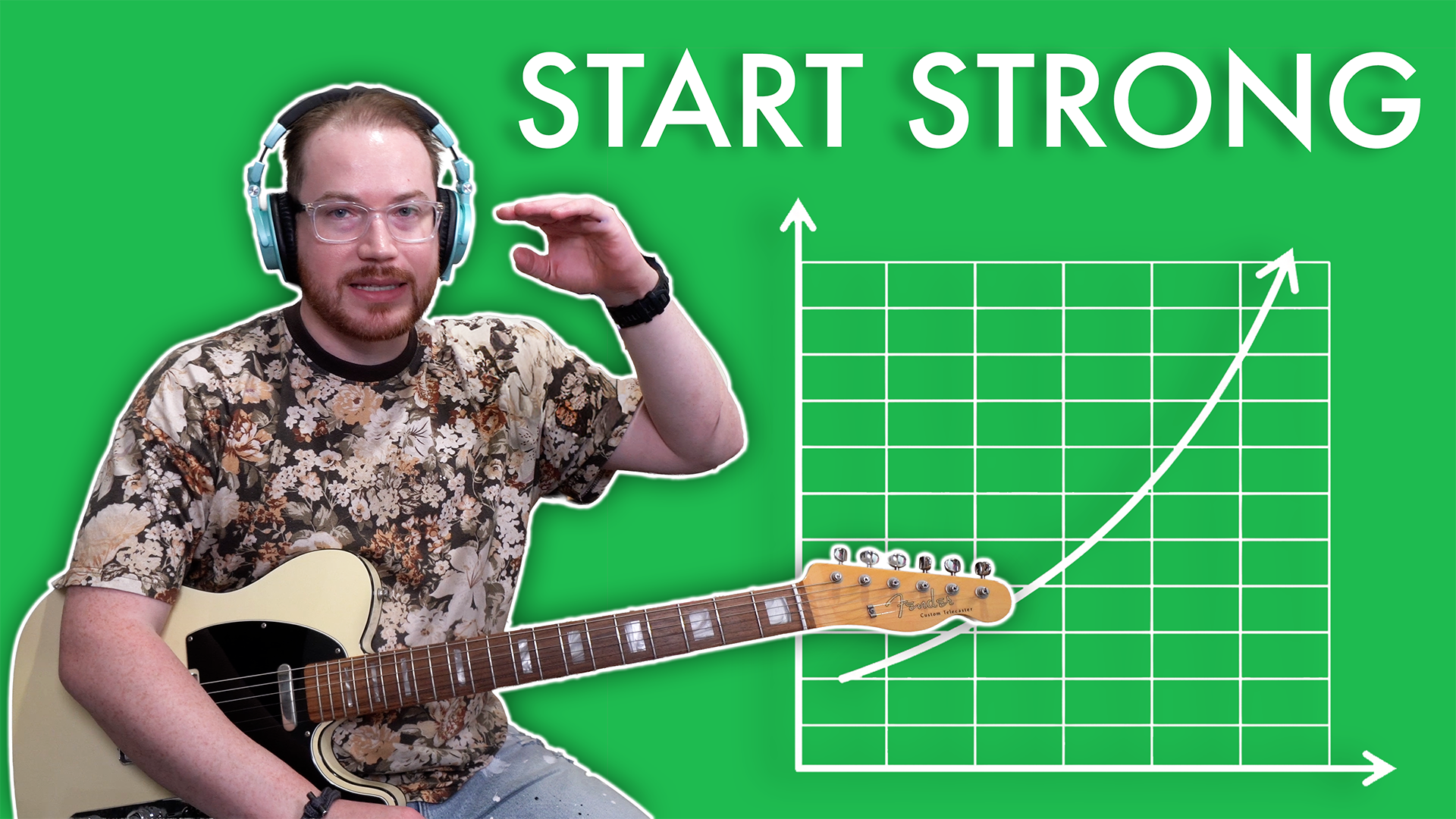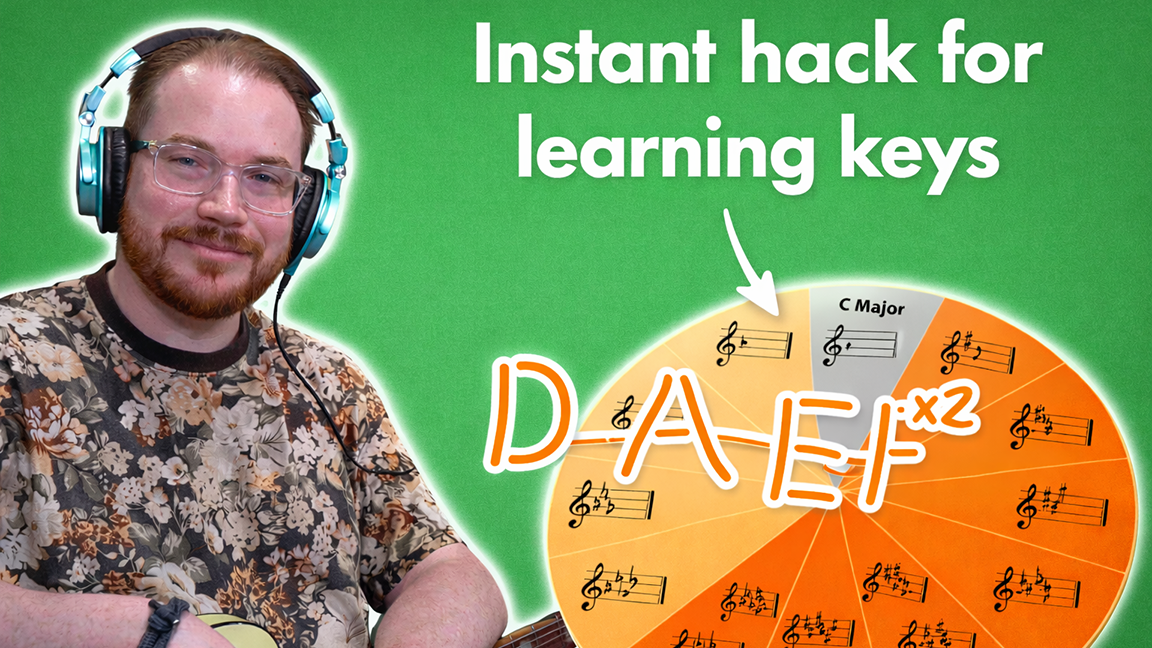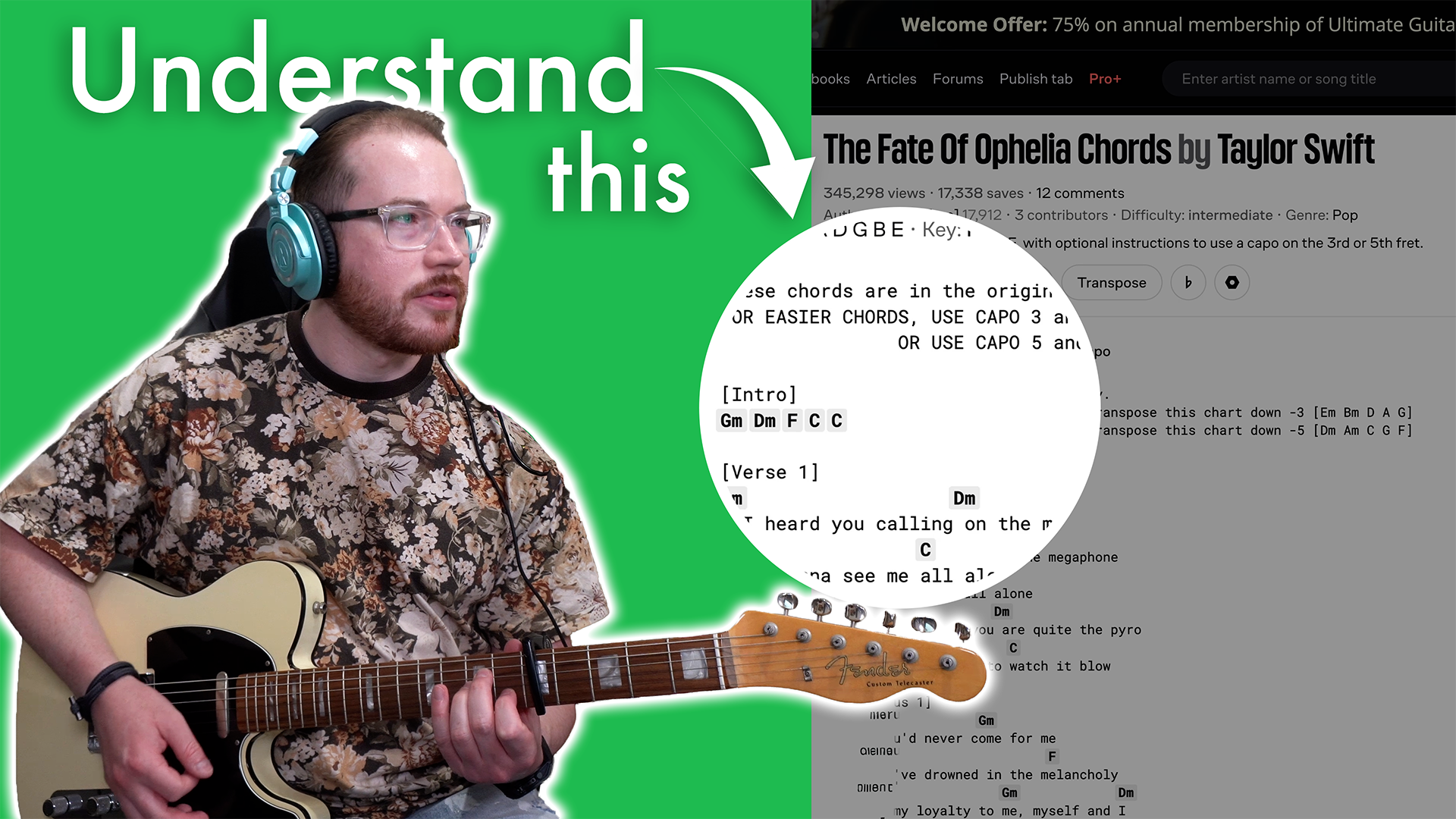Not being able to practice guitar isn’t a big deal
Does this sound familiar?
You’ve missed a few days of guitar practice. Maybe it’s been a week?
A month?
Longer?
Life got busy—work piled up, you went on holiday, or maybe you were dealing with an injury.
Whatever the reason, you’re feeling guilty about not practicing as much as you think you should have.
I want to share some ideas to help you reframe this problem and feel better about your progress—even during those times when life gets in the way.
I often have this conversation with my students. They’ll show up for a lesson and admit they’re frustrated with themselves for not practicing enough. When I ask why they didn’t practice, the answer is usually something like, “I had a really busy week.”
I get it. I’ve been there myself—recently, in fact.
I crashed my motorcycle
A few months ago, I injured my wrist in a motorcycle accident. At first, I thought I was fine, but a week later, my wrist was still sore. After seeing a hand therapist, I was given a brace to wear for six weeks, making guitar practice nearly impossible.
I tried to push through at first. “I’ll just focus on right-hand technique,” I thought. But playing in an awkward position while worrying about making things worse wasn’t sustainable. Eventually, I stopped practicing altogether—
—for ten weeks.
It was frustrating.
Before the accident, I was on a solid practice streak.
Suddenly, I was forced to step back completely. It would’ve been easy to get discouraged and dwell on the lost time, but instead, I shifted my perspective.
The power of a time frame
When students come to me feeling guilty about missing practice, I tell them to zoom out.
Look at the bigger picture.
If you focus on the last day or the last week, it might look like you haven’t done much.
But what about the past month?
Or the entire year?
If you practiced consistently for nine months out of the year but missed three due to injury or a busy schedule, that’s still a 75% success rate. That’s pretty solid!
The same applies to shorter time frames. If you practiced three or four days out of seven, that’s more than 50%. Even if you’ve missed a couple of weeks, it’s worth considering how much progress you’ve made over the past three months. Chances are, those missed weeks are just a small blip in an otherwise strong streak.
What happens when you take time off?
Taking a break doesn’t mean you lose everything. Sure, you might feel a bit rusty, and you’ll need to rebuild your finger calluses. But the fluency you’ve built over time doesn’t disappear.
Think of music as a language. If you don’t use a second language for a while, you might get rusty, but your native language stays intact. The same goes for guitar. Those basic open chords you’ve mastered? They’re locked in. Once you’ve developed fluency with an aspect of your guitar playing, it’s extremely hard to forget.
The trickier stuff you were working on before your break? That might take a little longer to brush up, but it will come back quicker than you think.
Easing Back Into Practice
When it’s time to get back into practice, don’t jump straight into long sessions.
Start light.
Work on gentle exercises, focus on simple pieces, and ease your way back in. Remember, playing the guitar is still a physical activity and your muscles haven’t been doing those movements for a while.
For me, I decided to start learning songs from the new Rockschool syllabus. These easier pieces let me rebuild my hand strength while also preparing for future videos. It’s a win-win: I’m regaining my skills and accomplishing something productive.
The Key Takeaway
Don’t beat yourself up for taking time off.
Life happens.
Maybe you were busy, sick, or injured—it doesn’t matter. Zoom out and look at your progress over a longer time frame. You’re likely doing better than you think.
Remember, you won’t lose all your skills. Sure, you might feel a little rusty, but with consistent practice, you’ll be back to where you were in no time!



